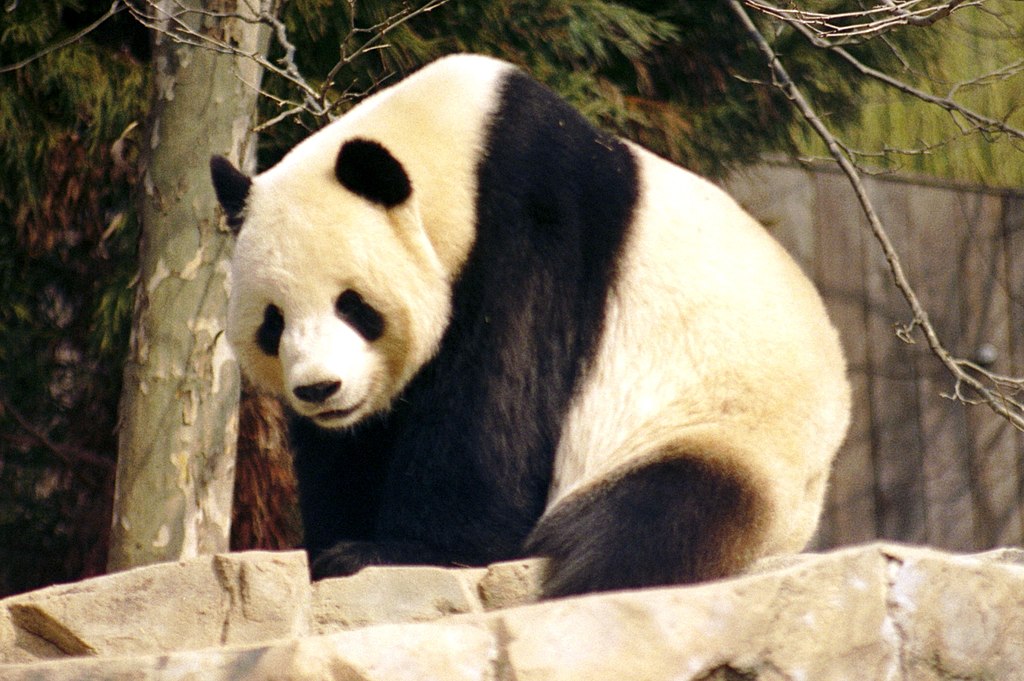Black, white, and gray all over: Our relationship with giant pandas

Male Giant Panda "Tian Tian" (1997) at the Smithsonian National Zoological Park in Washington, D.C.
Anna Johnson - The United States’ relationship with China has never been black and white - even when the representations of that relationship have been. “Panda diplomacy” started in the Nixon-era with the arrival of Ling-Ling and Hsing-Hsing to Washington D.C.’s National Zoo. Since then, the pandas' presence in Zoos across the country has represented the two countries’ ties to each other and their willingness to maintain active relations. After nearly fifty years, the National Zoo no longer has giant pandas. But talks between President Xi and President Biden suggest the absence may be a small blip in an otherwise stable relationship between the two states.
China owns nearly every giant panda in the world. They tie the existence of pandas, and their recent removal from the endangered species list, to a sense of Chinese national identity. Giant pandas are a living embodiment of national pride. Their recovery, due to intense breeding programs and decades of wildlife management, is a reflection of China’s resurgence in the global economy. The Chinese people connect their own experiences with those of the giant pandas and China itself. Within every contract between the Chinese government and an international zoo, there is a clause specifying all giant pandas and all giant panda offspring are the property of the Chinese government. Baby pandas born outside China must be returned to China before they turn four and senior adult pandas must be sent to China before they die. When Le Le, a giant panda at the Memphis Zoo, died from heart disease before returning to China, Chinese state media and members of the public began speculating Le Le’s death was due to neglect from the zoo rather than heart disease. While the accusations of mistreatment by the Memphis Zoo haven’t been confirmed, many people in China saw Le Le’s death as an attack on China and an expression of tensions with the United States.
The Chinese government has used giant pandas and their ties to Chinese identity as a form of ideological power to publicly display their economic and political ties to other states. Having a panda in your national zoo acts like a seal of approval from China. It signifies China’s willingness to have ongoing, stable relations with your state. Recalling the pandas from the National Zoo may be an expression of China’s relationship with the United States, showing a rift between the states. But during their talks in November, President Biden and President Xi discussed the possibility of renewing contracts to bring the giant pandas back.
PHOTO CREDIT: Jeff Kubina, Public domain, via Wikimedia Commons

